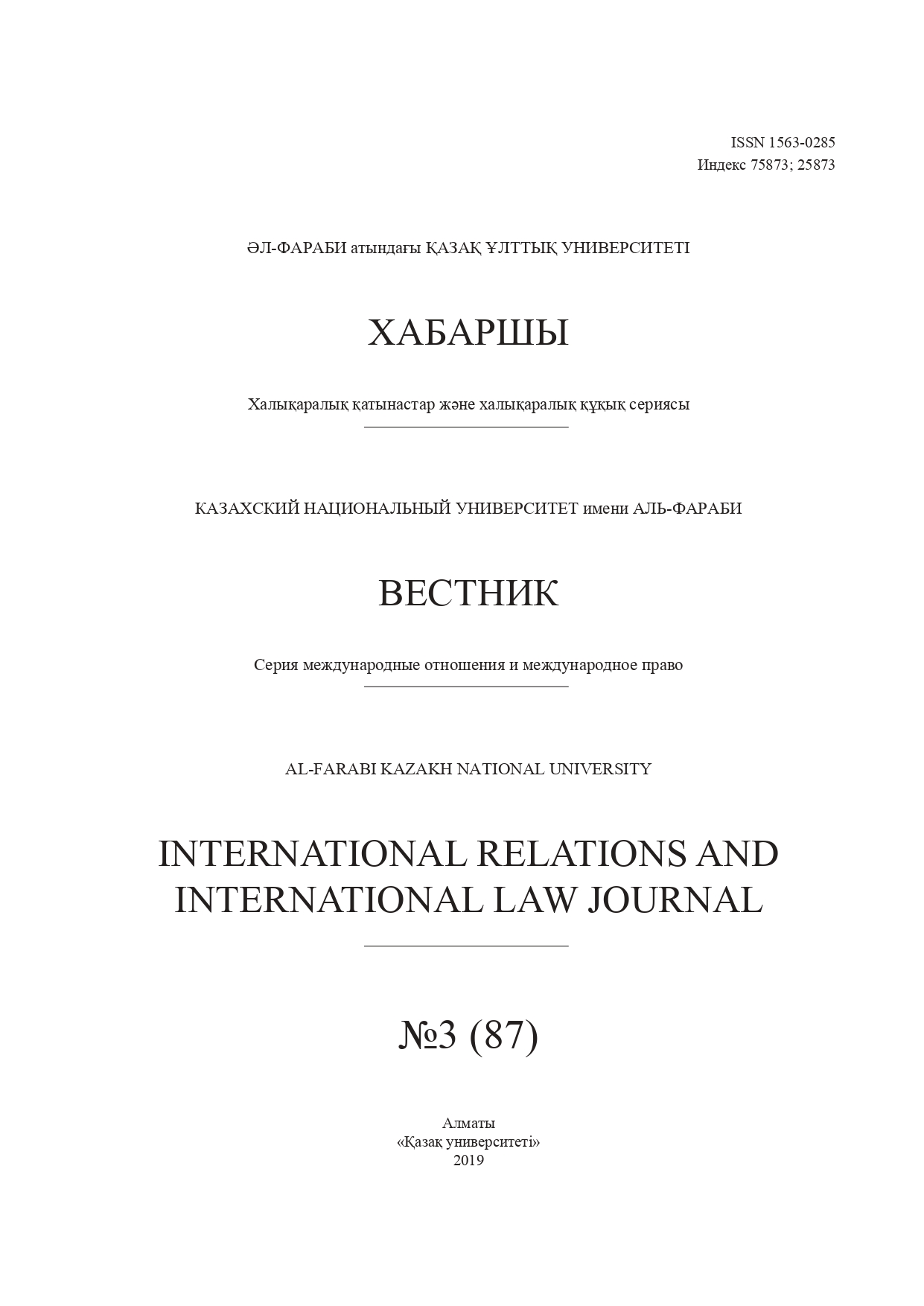Human rights in the US foreign policy case of Kazakhstan
DOI:
https://doi.org/10.26577/IRILJ.2019.v87.i3.05Аннотация
The article outlines the bilateral relations of the USA and Kazakhstan since 1992. The focus of the foreign relations analysis in this case is on human rights. The aim of the article is, therefore, to identify how the five Presidential administrations, namely, George H. W. Bush’s, Clinton’s, George W. Bush‘s Obama’s and Trump’s saw the role and place human rights and whether this particular agenda was either promoted or neglected. To answer the question, the author employs the method of case study. The task of the case study is to understand how (if any) the engagement of Kazakhstan in its bilateral relations with the USA influenced its domestic human rights policy.
The author used a wide range of primary and secondary sources, i.e. range of official documents and mass media materials as well as scholarly article and books on the subject. The author takes to answer the questions taking into account the premises of the ‘rational choice’ and ‘rational actors’ paradigms. The Strategic Partnership Dialogue set in 2012 does not prioritize human rights either. This policy was to prevent future violations of human rights through enhancing domestic institutions and traditional diplomacy that was reactive and inconsistent. The case of Kazakhstan has been studied in order to reveal the role and place of human rights in its bilateral relations with the USA.
Key words: human rights, US foreign policy, US-Kazakhstan bilateral relations.














